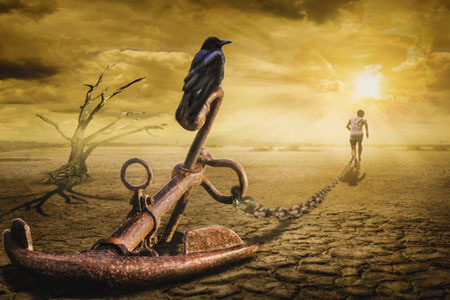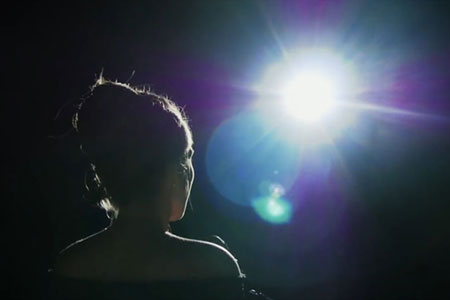self-sabotage
Lead By Example – A Message From My Guides
 Many of you lead by example, without having to think about it. You obey traffic signals. You pick up garbage if you accidentally drop it. You hold doors open for others. You smile at strangers. You volunteer. You support local charities.
Many of you lead by example, without having to think about it. You obey traffic signals. You pick up garbage if you accidentally drop it. You hold doors open for others. You smile at strangers. You volunteer. You support local charities.
Entering the second month of this new decade, it might be a good time to re-think some old habits, and also lead from within.
For example, it may be a good idea to tone down those automatic, knee-jerk thoughts of annoyance, anger or retribution when someone pushes all-too-familiar buttons. Instead of allowing the cortisol and adrenaline to skyrocket within your body, think things through, before reacting negatively. Resist the urge to speak hurtful comments, even if your basic premise is sound. Find a constructive way to get your point across.
Sometimes it is tempting to jump on the bandwagon for likes and shares on social media platforms. However, if the topic is not kind, hold your tongue. Instead, be the person who can be counted on for level-headed discourse, without vitriol.
In general, be kind to others. Give people some leeway when it is evident that they are trying their best. Catch them doing something right, instead of watching for errors and omissions. Give recognition and praise where warranted. It can mean so much and does not cost anything.
Be kind to yourself too. Banish negative self-talk. Give yourself the right to be human and allow yourself to make mistakes, without chastising yourself for an unimportant oversight. If a serious error does occur, do your best to rectify the issue in a timely manner, with a ‘note-to-self’ that you have learned from the situation and will not repeat it.
The Linear Time Trap Of The Past
 It is said we do not know what time is. We also do not know where it comes from, and we definitely do not know where it goes! And according to Albert Einstein, the famous physicist, the distinction between past, present and future is only an illusion, because space and time are fluid. Yes, such are the mysteries of the fourth dimension.
It is said we do not know what time is. We also do not know where it comes from, and we definitely do not know where it goes! And according to Albert Einstein, the famous physicist, the distinction between past, present and future is only an illusion, because space and time are fluid. Yes, such are the mysteries of the fourth dimension.
Linear time may be an illusion in scientific terms, but in our daily life it is still the time that we cannot stop or control. That clock keeps on ticking, and the cycles of night and day will forever come and go. Every morning, the sun shall continue to rise, and the Earth will progress on its annual journey around the Sun.
However, our experience of time goes beyond the everyday linear. Did you know that there is also such a thing as spiritual time?
Surely you have observed that whenever you are doing something really unpleasant or boring, time can certainly drag on. For example, I recently had to wait for some medical tests that would determine whether or not I was developing breast cancer. Thankfully, the tests came back negative, but I remember thinking of those awful four weeks of hospital visits and biopsies as being the ‘longest month of my life!’
On the other hand, time can also pass so quickly whenever we are having a good time and enjoying ourselves. Why would this be? Well, when you are really delighted with something, your soul, your spirit, your higher self becomes fully engaged in the pleasant experience you are having. In simple terms, when this happens, you literally lose track of linear, reality time itself and your personal, spiritual time shifts to the front. This is the time of your true spiritual self.
Cast Fear Aside And Embrace Courage!
 I once read about a woman in a very unhappy relationship. She sought counsel from a highly-revered spiritual leader. In a calming tone, the spiritual guru cautioned that in order to gain marital happiness, the woman would need to let go of the partner she lacked happiness with.
I once read about a woman in a very unhappy relationship. She sought counsel from a highly-revered spiritual leader. In a calming tone, the spiritual guru cautioned that in order to gain marital happiness, the woman would need to let go of the partner she lacked happiness with.
The woman confusingly gazed upon the sage, with her hands tightly tucked under her chair. Again, the holy man repeated that in order for the right man to walk through the door, she would need to let go of the wrong man.
Even more puzzled, the woman confided that she was afraid of being alone. Her teacher, taken aback, turned to the woman and announced that fear was a disease of the mind and the heart – if allowed, fear would keep her in a state of perpetual unhappiness.
How many times have you missed out on life’s many blessings, because you were afraid of moving to a new place, changing career lanes, or ending a relationship with someone who did not honor your greatest dreams? Each of us has experienced these moments of stalemate consciousness in our lives, and each of us has become crippled by fear at some point.
Let me remind you that while a lack of confidence might only slow down your dreams, fear will completely get in the way of the manifestation of your greatest desires and goals. Without personal growth and courage, the formula will not change, and your life will remain the same.
Be The Star Of Your Show!
 Are you the star of your own show? If not, then maybe it is time. For once put yourself first by honoring your spirit, your sacred body temple, and the higher work you have been called to complete in this lifetime.
Are you the star of your own show? If not, then maybe it is time. For once put yourself first by honoring your spirit, your sacred body temple, and the higher work you have been called to complete in this lifetime.
You can begin by honoring your spirit with deeply soulful ‘food.’ This can take the form of meditation, prayer, or simply enjoying whatever self-care activity or spiritual practice feeds your spirit the most. But in doing so, it is important to consciously disconnect from the mundane world around you, and allow the blissful energy of Spirit Divine to pour in.
As I write these words, I can literally feel the healing energy of the sunlight bathing me, even though I am logging on from deep in the cold Rockies on a cloudy afternoon. This intense energy is a message to my soul that each of us has the ability to tap into spiritual warmth and renewal within a single thought.
My late mother used to call this connection with the Divine the I AM presence that is abundantly accessible to us all. It is important to tap into this presence as a reminder that we are spirit energy, divinely guided, protected, and in ‘the spotlight of our own shows.’
Being a ‘star’ also means that you must take deliberate time to honor your sacred body temple. You do this by enjoying healthy foods and balanced nutrition.
Roadblocks To Spiritual Growth
 The spiritually aware person is by nature more open, attuned and sensitive to everything around them: spiritually, emotionally, and physically. Letting all that additional energy flow in can be empowering, but also exhausting.
The spiritually aware person is by nature more open, attuned and sensitive to everything around them: spiritually, emotionally, and physically. Letting all that additional energy flow in can be empowering, but also exhausting.
You also may find yourself adrift and lacking in purpose when it comes to your spiritual development and growth. Maybe you’re asking what is your life’s mission, or purpose? This kind of confusion and procrastination is common when you are experiencing energetic overload, or not appropriately investing your time and energy. But the good news is, it can be overcome.
Guidance
So many of us struggle with the big questions: why are we here, and what are we meant to do? But there is no right or wrong answer to this question. Asking your spirit guides, a mentor or a community of like-minded people for help on your journey is usually a step in the right direction. Be open and honest when you ask for guidance, and accept that the answers may not always be the ones you are expecting.
Practice
Instead of practicing our spirituality, we often spend a lot of time reading books or watching instructional videos on how to do it. The truth is, you already have all the spiritual skills you need, or you’re able to intuit them. Instead, actively practice your spirituality each day. Don’t be afraid of failure or shortcomings, because there is no such thing spirituality.
Give Your Nervous System A Break
 Given the fast pace of today’s world, the expectations of others, as well as the pressure we place on ourselves, giving our nervous system a break, and understanding the ways to support and strengthen this system, is physically, emotionally and spiritually important.
Given the fast pace of today’s world, the expectations of others, as well as the pressure we place on ourselves, giving our nervous system a break, and understanding the ways to support and strengthen this system, is physically, emotionally and spiritually important.
Stress is something we all experience – some more than others. Those of us who are empathic, psychic, or highly sensitive, can experience stress more intensely with more profound consequences.
The stress that empaths, psychics and sensitives experience may be tied to that of another person, or situation, as well as their own stress. This ability to experience the emotions, thoughts and feelings of others can create a rebound effect of high stress.
Racing heart, anxiety, quickening of breathing, tensing of muscles, sweating, feeling faint or nauseous, are all signs of a nervous system in flight mode. Add in the compounded impact of experiencing this in another person, on top of yourself, and your nervous system is off and running, literally.
The body’s ‘fight or flight response’ is controlled by the sympathetic nervous system, which is one part of the autonomic nervous system. The other part is the parasympathetic nervous system, which works to relax and slow down the body’s response.
The sympathetic system acts like an accelerator, to ‘rev up’ our body and make us run, to remove us from danger. The parasympathetic system acts like the ‘brake,’ slowing us down when danger isn’t present.
